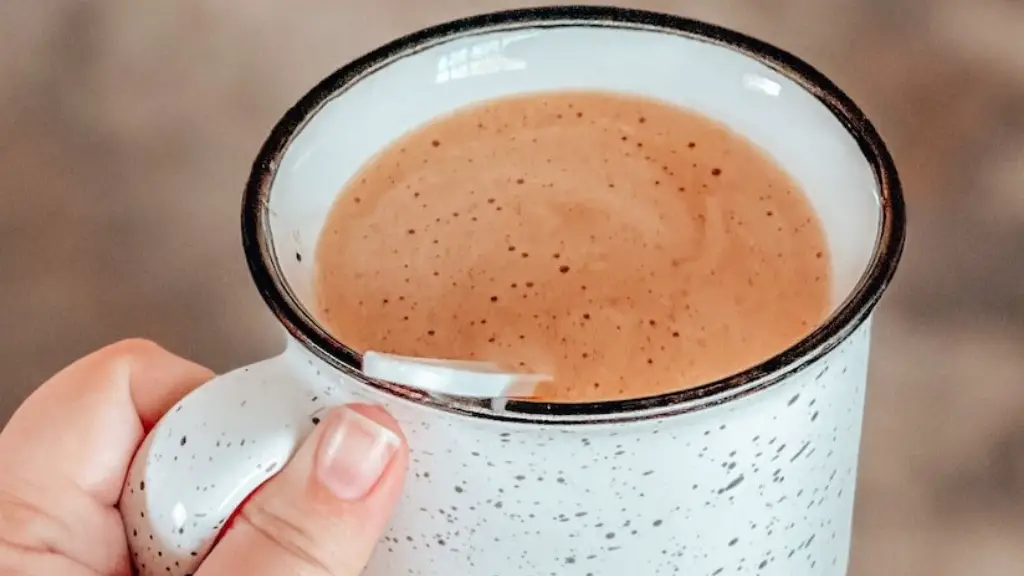The subject of how old kids can drink coffee is complex, with many facts and opinions to consider. Coffee is not an essential food or drink for kids, yet it can have a profound impact on both their physical and mental health. This article will explore the science behind when kids can start drinking coffee, the risks associated with their consumption, their potential health benefits, and how parents should approach the topic of coffee drinking.
Often, people start drinking coffee as a way to pep up their energy levels and focus. Coffee contains high levels of caffeine, which helps enhance energy levels, mental alertness, and performance, allowing people to feel more alert and energized. The available evidence shows that caffeine may not be beneficial for all kids, though, and that they should consult with their parents or healthcare providers first.
Caffeine enters the body, passing through the stomach and small intestine, and into the liver’s bloodstream. From there, it travels throughout the body and to the brain, where it attaches to receptors and sparks activity. At the same time, it triggers the release of the hormones dopamine and adrenaline, giving users an acute “high.” The effects of caffeine can last up to five hours. In children, caffeine can have physical effects like increased heart rate, restlessness, anxiety, and insomnia, despite being milder than those in adults.
Generally speaking, caffeinated drinks become an issue for children when their total caffeine intake exceeds the safe limits set by healthcare professionals. Consult your pediatrician to determine the right amount of caffeine for each child. The American Academy of Pediatrics recommends that children between 4 and 12 should not have more than 85 milligrams (mg) of caffeine per day, while children 13 and older can consume up to two caffeine drinks a day.
The primary concern when it comes to kids drinking coffee is how caffeine affects their developing brains. High amounts of caffeine can lead to restlessness and distractibility in kids. It may also negatively affect their educational achievement; research has linked higher caffeine consumption to worse performance in school. Caffeine consumption may also lead to health issues, such as hypertension, headaches, palpitations, and sleep disturbances.
On the positive side, some studies suggest that coffee consumption can have beneficial health properties in kids. Caffeine may increase mental alertness and enhance physical performance, as well as reduce fatigue. It also stimulates the cardiovascular system, acts as an antioxidant, and can help fight inflammation.
Ultimately, parents should decide what’s best for their kids when it comes to coffee consumption. They may want to discuss the issue with their healthcare providers and make sure that their children’s total caffeine intake stays below the safe limits. If their kids are old enough, they can also talk to them about the potential risks and benefits of drinking coffee and help them make an informed decision.
Nutrients in Coffee
Coffee contains several important nutrients, such as B vitamins, magnesium, potassium, and antioxidants. In particular, coffee is a rich source of antioxidants, including flavonoids, phenolic acids, chlorogenic acids, and lignans. These antioxidants may protect cells against damage and reduce inflammation.
Minerals are also found in coffee, including calcium, zinc, iron, and magnesium. While many of these minerals are present in small amounts, coffee can provide an important source of magnesium for kids. Magnesium is essential for proper muscle contraction and contributes to nerve function, calcium absorption, and enzyme activity.
In addition, coffee contains some beneficial plant compounds, such as chlorogenic acids and other polyphenols. These compounds show promising potential for heart health and cancer prevention when consumed in moderation.
However, plain black coffee is also low in calories and contains no added sugars, fats, or sodium – three things that kids definitely need more of. Therefore, adding creamer, lightener, and/or sugar to coffee adds calories, which can lead to problems like obesity if consumed in large volumes. In addition, adding certain additives to coffee can cause health issues, such as dairy allergies or lactose intolerance.
What About Decaf?
Decaffeinated, or “decaf,” coffee also contains some caffeine, but at lower levels than regular coffee. One cup of decaf coffee contains as little as 2–10 milligrams (mg) of caffeine, compared to 95–200 mg in a single cup of regular coffee.
Decaf coffee does contain some nutrients and beneficial plant compounds, and it offers almost the same health benefits as regular coffee, but without the undesirable effects of caffeine. This means that decaf coffee may be a good option for kids that want to enjoy the taste of coffee without the stimulant effect.
Decaffeination processes vary and the amount of residual caffeine in decaffeinated coffee can vary too. The safest and most reliable option, however, is organic decaf coffee, which has to contain fewer than 0.1 mg of caffeine per cup.
Does Coffee Have Caffeine?
Yes, coffee does contain caffeine. The amount of caffeine in coffee varies depending on the type of coffee bean, the roasting process, and the brewing method. On average, one cup of brewed coffee contains about 95–200 mg of caffeine.
In comparison to other popular caffeinated beverages, the amount of caffeine in coffee is much higher. For example, one cup of black tea contains about 14–70 mg of caffeine, while one can of soda contains around 30–40 mg. Energy drinks can contain up to 80 mg of caffeine per can.
Health Benefits of Coffee
Coffee has several health benefits, especially when consumed in moderation. Studies suggest that coffee can reduce the risk of some chronic diseases, such as type 2 diabetes. It may also reduce the risk of certain types of cancer and protect against Alzheimer’s disease and Parkinson’s disease.
Coffee also contains caffeine, which can increase energy levels, mental alertness, and physical performance. Caffeine may also boost mood, reduce fatigue, reduce the risk of depression, and improve cognitive performance.
Finally, coffee may have benefits for heart health. Several studies have linked coffee consumption to a lower risk of cardiovascular disease. A high intake of coffee is associated with a reduced risk of death from all causes.
Risks of Coffee Consumption
Although coffee does have some health benefits, too much of it can increase the risk of several health issues. Excessive coffee consumption can cause nervousness, headaches, restlessness, and irritability. It can also affect sleep quality, causing insomnia or restlessness.
In addition, people with certain health conditions, such as hypertension, should avoid drinking coffee or other caffeinated beverages. It should also be avoided by pregnant women and young children.
Coffee can also lead to dental problems, such as stained teeth, cavities, and gum disease. Excessive coffee consumption can also increase the risk of drug interactions, since many medications interact with caffeine.
Conclusion
Coffee has both health benefits and risks, so parents need to weigh the pros and cons before allowing their children to drink it. The amount of caffeine their kids consume should be limited to the safe limits recommended by healthcare professionals. When consumed in moderation, coffee can be an enjoyable way to increase energy levels and focus.





